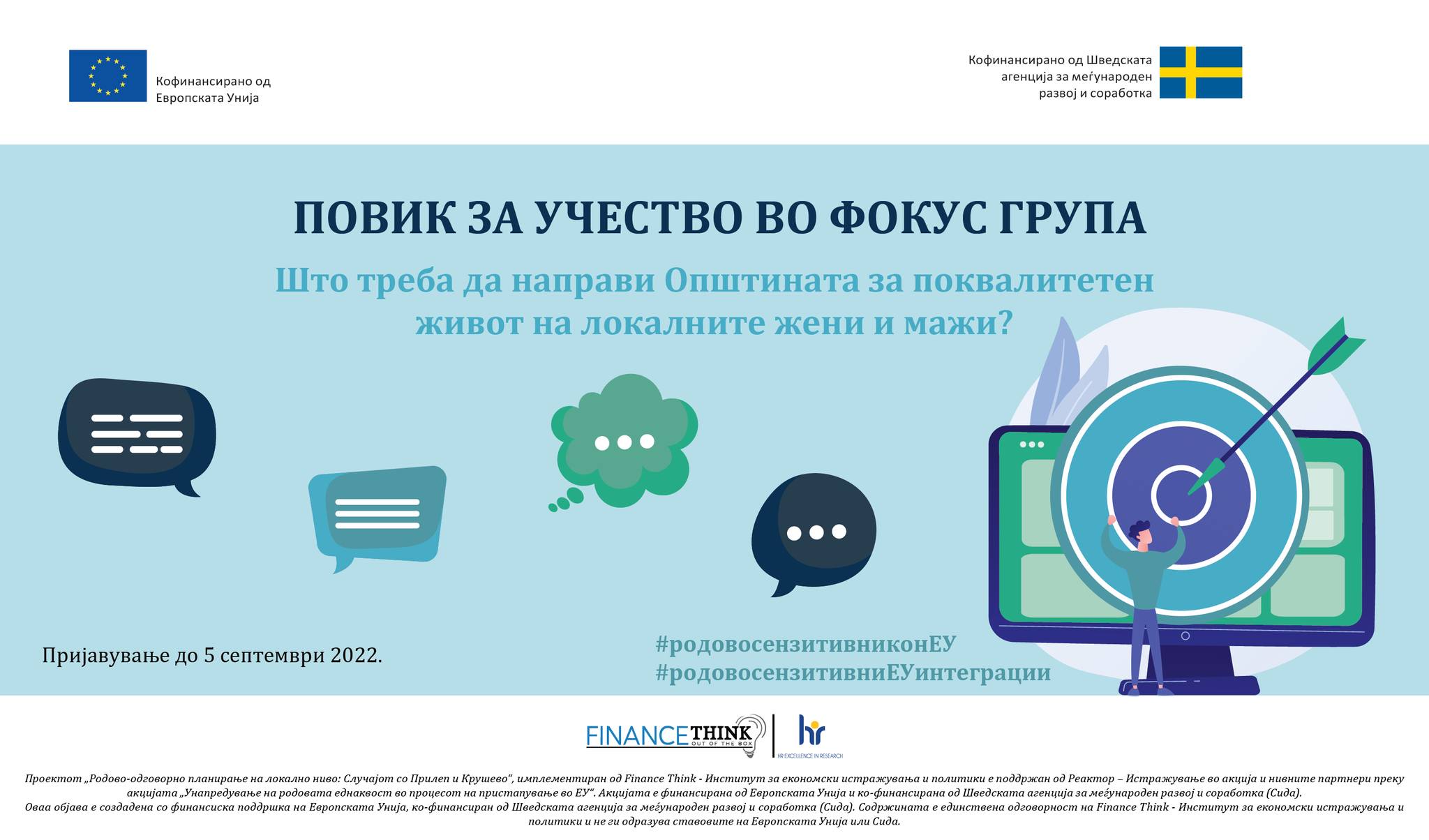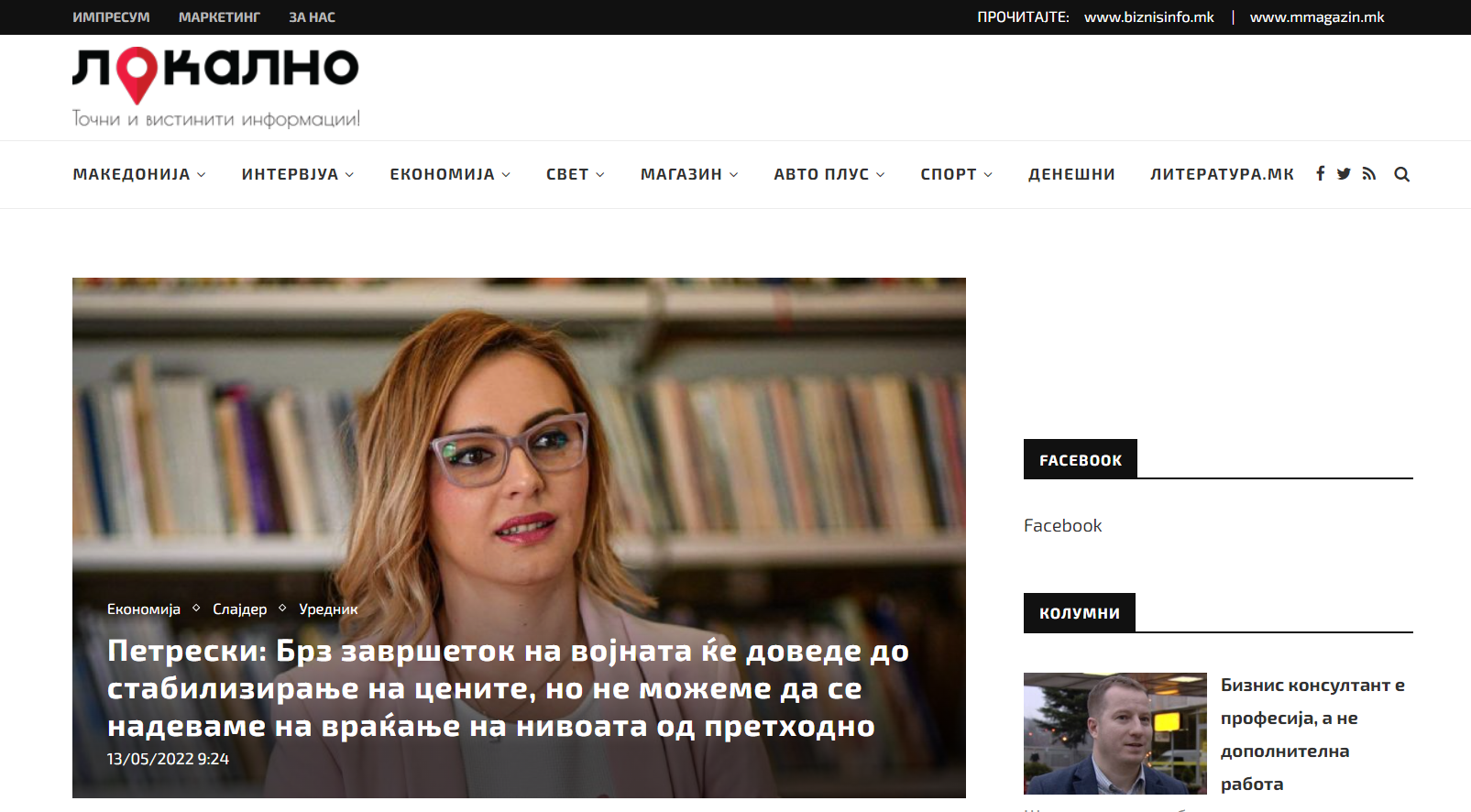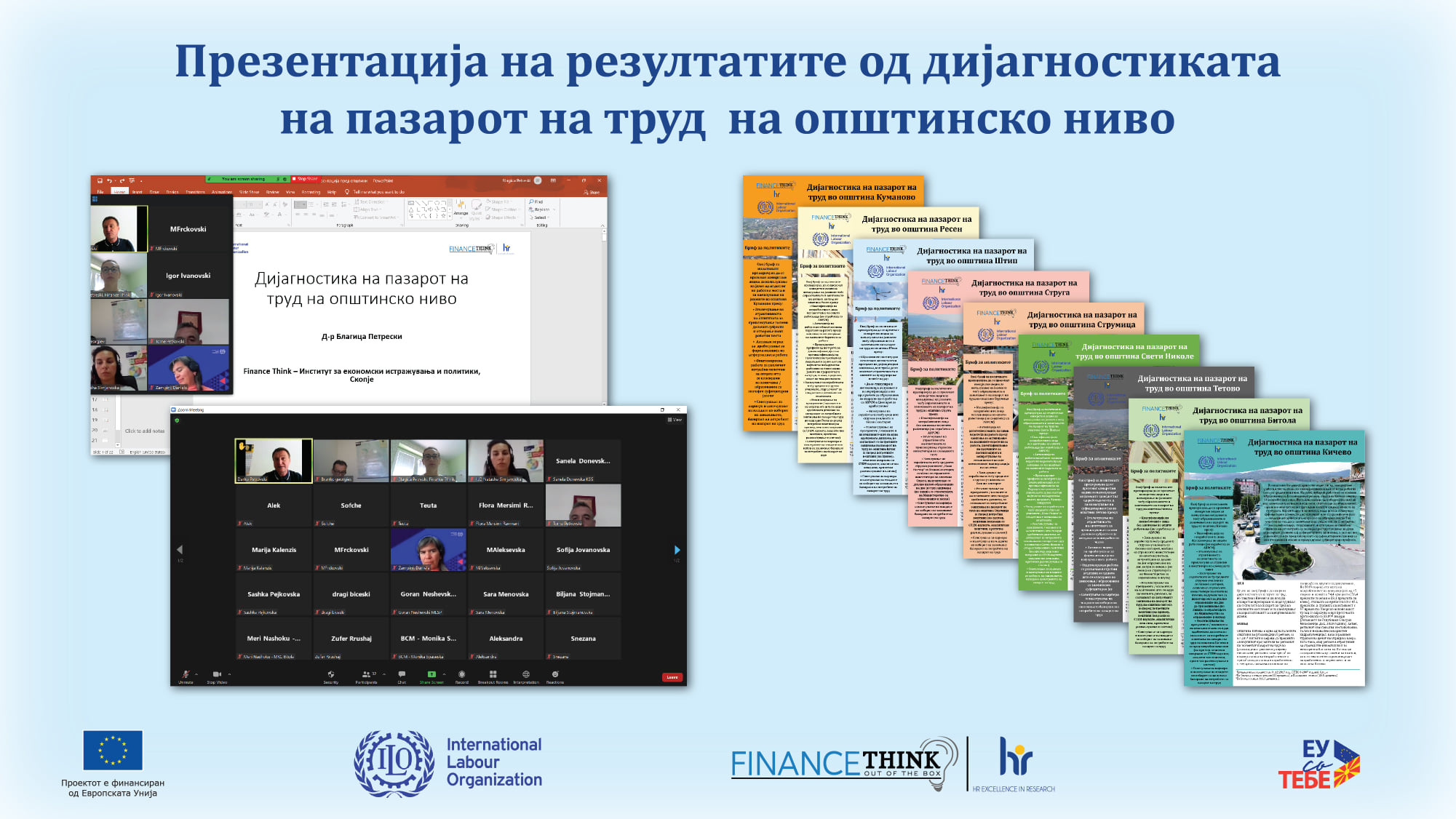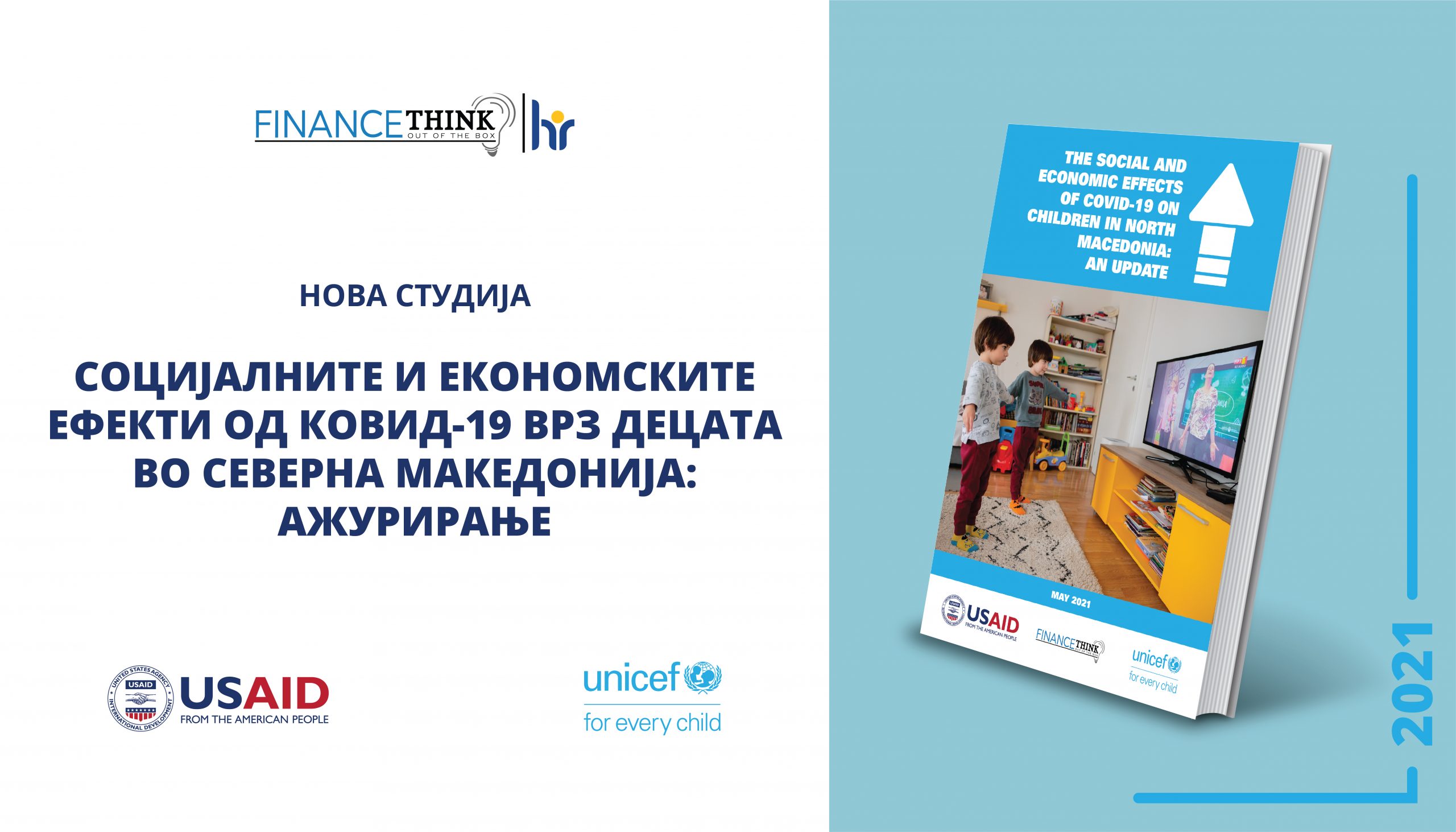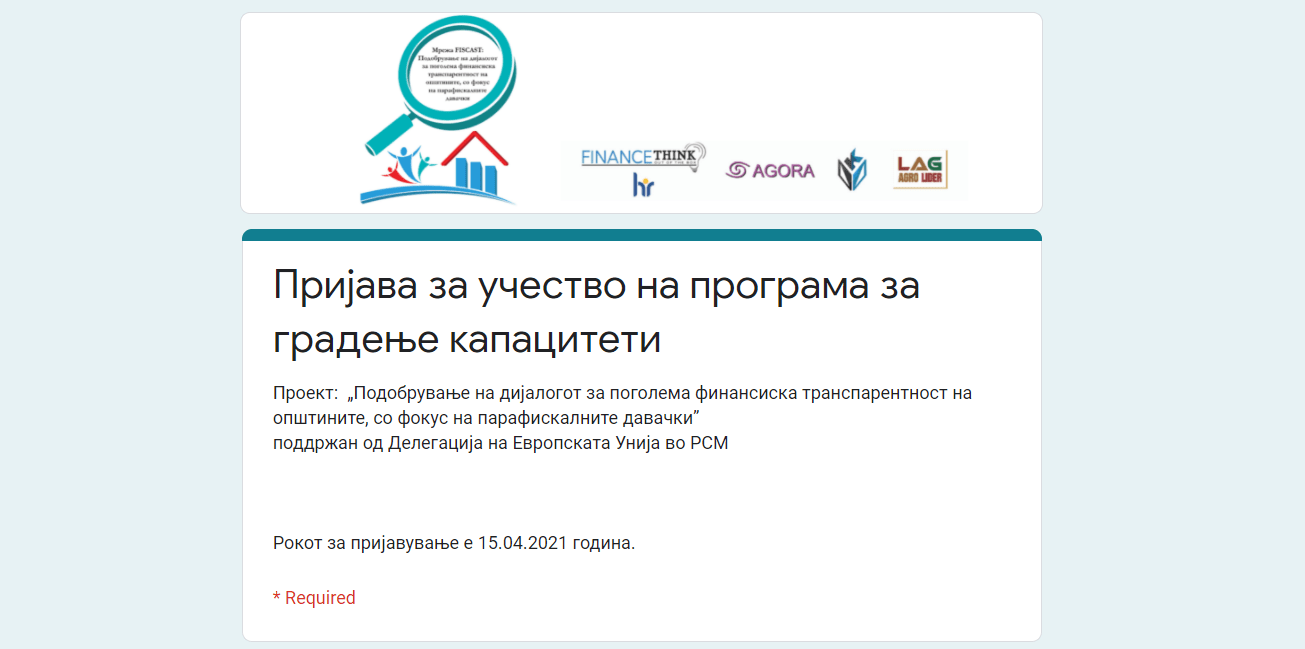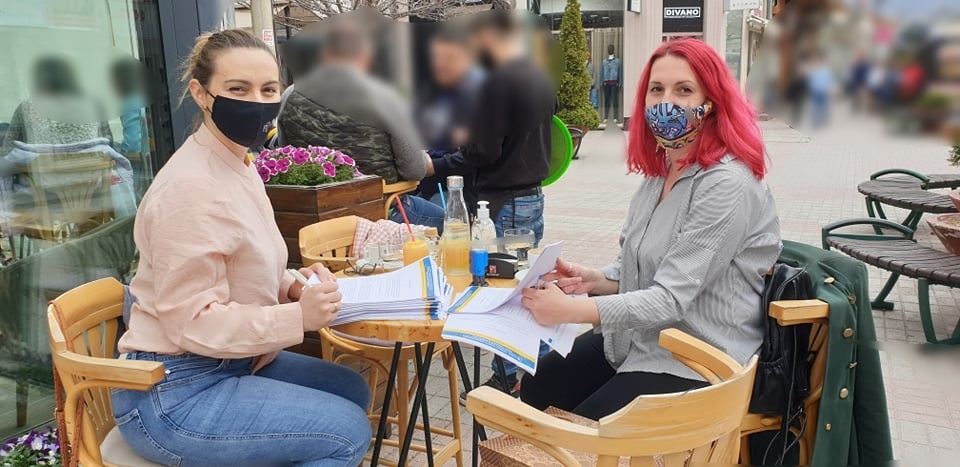Sign up at https://forms.gle/NiYoZ55MUvcXBrjY7
FT Opinion no. 57 (Opinion of Group CIVITAX) on the proposed tax reform (MK content)
Министерството за финансии објави неколку важни промени во даночниот систем, со намера поголем дел од нив да почнат да се применуваат почнувајќи од 1 јануари 2023 година. Групата ЦИВИТАКС, основана во 2018 година, како неформална група од 14 основачки и 29 придружни влијателни граѓански организации и физички лица, се произнесува со следниот генерален став.
Граѓанските организации обединети во групата ЦИВИТАКС во неколку прилики, а и преку Блупринтот од 2016 година, укажуваа дека не се исцрпени внатрешните јавни извори за поголема ефикасност и ефективност со управувањето на јавните ресурси на државата, односно во рационализацијата на расходната страна на буџетот на државата.
Впрочем, тоа е потврдено и со загубени 23 милиони евра буџетски средства од страна на извршната власт, како и дополнителни 108 милиони евра за дополнителни трошоци и непредвидени работи поради неефикасно и неефективно работење и од последните извештаи на Државниот завод за ревизија само во последниот месец:
- Ревизијата на успешност на мерките за поддршка од кризата предизвикана од Ковид-19, меѓу другото, укажува дека поради недостиг од контрола врз државните институции како и неефикасност во реализирање на целите, во буџетските приходи се „загубени“ 23 милиони евра.
- Ревизијата на успешност пак на задолжувањето на субјектите од јавниот сектор јасно покажува дека во управувањето со јавните инвестиции: „… отсуствува системска правна рамка, постапки и процедури, надлежни институции и дефинирани индикатори за систем за мониторинг и надзор на спроведувањето на јавните инвестиции…“, и неефикасноста и неефективноста се потврдува со немање целосна слика и системски пристап, значајни отстапувања, застој, како и недостиг од аналитички пристап. Од ваквите проекти, ревизијата утврдила дополнителни трошоци за провизии и камати од 58 милиони евра, како други 40 милиони евра за непредвидени и дополнителни работи.
НАЈАВЕНИТЕ „ДАНОЧНИ РЕФОРМИ“, СЕ ПОБЛИСКУ ДО ДЕФИНИЦИЈАТА НА АД-ХОК МЕРКИ НАЈВЕРОЈАТНО ПОТТИКНАТИ ОД НУЖНОСТ, НО НЕ И ОД ЖЕЛБА ЗА РЕФОРМИ
Граѓаните очекуваат најпрво да добијат подобрени и поквалитетни јавни услуги, транспарентен и отчетен систем, со јасни, издржани и предвидливи долгорочни политики пред да се соочат со даночни измени кои се базираат повторно на ад-хок и не-системски чекори. Истражувањата за даночна одговорност на Центарот за Економски Анализи – ЦЕА, членка на Групата ЦИВИТАКС, покажаа дека даночните обврзници во Северна Македонија не сакаат да ја гледаат својата врска со државата како жртва и принуда од страна на предаторот/држава, туку како процес на размена од заеднички интерес.
Граѓаните сакаат да се чувствуваат повеќе како корисници на услуги отколку како гласачи. Чувството за злоупотреба на средствата на обврзниците од страна на властите влијае негативно врз степенот на даночниот морал како одговор на перцепцијата за неодговорно трошење на даночните средства и се одразува во низок степен на доверба во институциите. Даночните обврзници во најголем дел немаат доверба во државните институции и сметаат дека доколку би плаќале повисоки даноци истите само може да бидат злоупотребени, а не и дека ќе бидат инвестирани во подобрен квалитет на јавните услуги.
И, конечно, најавените „даночни реформи“, се поблиску до дефиницијата на ад-хок мерки најверојатно поттикнати од фискална нужност, но не и од желба за реформи, бидејќи не се базираат на економски и финансиски анализи кои се транспарентни и стратешки врамени кои ќе обезбедат предвидливост за сите засегнати страни. Овие ткн. „даночни реформи“ се фокусираат и се базираат само на зголемување на даночна база заради фискални цели. Даночни реформи се повеќе од прибирање на приходи во централниот буџет. Даночни реформи треба да бидат најмалку заради фискален ефект, а повеќе за: ефикасен и еднаков третман на економски оператори, обезбедување на еднаков даночен товар на даночните обврзници и отстранување на пазарни девијации, јасно дефинирање на даночни цели, стабилност и предвиливост на даночниот систем, јасно кодифициран административен даночен систем во законската и подзаконската регулатива кој овозможува максимизирање за усогласување со даночната регулатива од страна на даночните обврзници, јасна поврзаност на даночниот систем со фискалните, економските и социјалните цели во државата, итн.
Оттука, Група ЦИВИТАКС укажува на недоследности, недоречености, нетранспарентност и недостаток на стратешки пристап за да навистина се влезе во даночни реформи.
НЕДОСТАСУВА КОНСУЛТАЦИЈА СО ЦЕЛОСНИ И ИСТОВРЕМЕНО-ДОСТАПНИ ИНФОРМАЦИИ ЗА СИТЕ
Даночните измени, од кои дел имплицираат важни промени во даночниот систем, не се објавени официјално, туку во јавноста проциркулира презентација која Министерството за финансии ја користело на досега-изведените средби со бизнис секторот. Граѓанскиот сектор, како важен чинител во процесите на реформи на јавните финансии и особено во делот на зголемување на транспарентноста и отчетноста на носителите на политиките, остро протестира што Министерството за финансии инклузивноста ја сведува на целно, дозирано и постепено лиферување информации, со потенцијално разногласие помеѓу она што е напишано во споделената презентација и впечатокот кој може да се стекне од интервјуата на министерот.
Земајќи го предвид ова, Групата ЦИВИТАКС се произнесува околу предложените даночни измени, групирани во неколку точки.
ОПШТЕСТВЕН КОНСЕНЗУС ЗА ПОГОЛЕМИ И ПОШИРОКООПФАТНИ ДАНОЦИ
- Според проценките на домашната експертска јавност и меѓународните финансиски институции, сивата економија во Северна Македонија изнесува од 25% до 40% од БДП. Истражувањата за сивата економија од Finance Think – Институт за економски истражувања и политики, членка на Групата ЦИВИТАКС, даваат проценка за поконзервативен но се’ уште висок удел на сивата економија од 23.2% во 2020 година. Дури и да се земе тој процент, сивата економија изнесува околу 2.5 милијарди евра, на која ако се земат предвид сегашните даночни оптоварувања, се доаѓа до износ од околу 650 милиони евра годишно кои треба да се слеат во државниот буџет, но не се слеваат затоа што државата не успева во борбата со сивата економија.
Притоа, Стратегијата за формализација на сивата економија 2018-2022 има стагнантен или никаков прогрес, дури и за повеќето од мерките не постои податок дека тие се отпочнати да се спроведуваат и, се’ вкупно, нема владин документ-извештај кој демонстрира кој е напредокот во борбата со сивата економија. Тоа не’ враќа во периодот од пред 5 години, кога јавната дебата укажуваше дека за да може државата да премине кои поголеми и пошироки даночни зафаќања, неопходно е да се покажат резултати од борбата со сивата економија. Оттука, Групата ЦИВИТАКС бара Владата да елаборира за напредокот во борбата со сивата економија, во смисла на остварени резултати, пред да може квалитетно да се дискутира за какви било даночни измени.
- Поврзано со борбата со сивата економија, даночните измени предлагаат консолидација на даночните ослободувања во законите за данок на личен доход, за ДДВ и за добивка, промена која Групата ЦИВИТАКС генерално ја поддржува.
- Групата ЦИВИТАКС остро се спротивставува на намерата да се воведат придонеси на договори за привремено и повремено вршење работа, од повеќе причини.
- Прво, Владата на Груевски во 2015 година воведе придонеси на вакви договори, кои беа иницијална каписла на протестите и периодот којшто следеше, по што Владата ја поништи промената по шестмесечна примена. Сегашната намера да се воведат придонеси на договорите за привремено и повремено вршење работа е решение кои припаѓа на друго време во кое и сегашната владејачка партија, а тогашна опозиција, истото го напаѓаше и критикуваше.
- Второ, во 2019 година, Групата ЦИВИТАКС работеше со Министерството за финансии и Управата за јавни приходи за создавање Водич за подобро информирање на физичките лица за данокот на додадена вредност (линк од УЈП), според кој надоместоците од договорите за привремено и повремено вршење работа се сметаат за промет од давање услуги и влегуваат во пресметката на прагот за ДДВ. Со сегашната намера за определување придонеси на овие договори, третманот на надоместокот се менува од промет од извршени услуги во приход од работа. Ваквото произволно и паушално менување на правниот (и даночниот) третман на надоместоците од договорите за привремено и повремено вршење работа е сериозно удирање по правните темели и флагрантно поткопување на владеењето на правото.
- Трето, без анализа на тоа кои се лицата кои вршат привремена и повремена работа, дејноста во која тоа го прават, нивниот профил и сл., секое решение е однапред осудено на малверзации и, во крајна линија, неможност за имплементација.
Оттука, Групата ЦИВИТАКС не прифаќа воведување придонеси на надомест од повремена и привремена работа и обидот го смета за флагрантно поткопување на владеењето на правото во Северна Македонија.
- Групата ЦИВИТАКС го поздравува отстранувањето на прагот за неплаќање социјални придонеси на доходот од вработување, што беше наше барање од ноември 2018 година.
- Групата ЦИВИТАКС ја поздравува дебатата за прогресивниот данок на личен доход. Ставот на Групата ЦИВИТАКС е дека во перспектива Северна Македонија треба да цели кон одредена прогресивност кај доходите на граѓаните и компаниите, меѓутоа оваа дебата треба да се отвори многу порано, најмалку на почетокот на годината, да трае, со вклученост на засегнатите страни и граѓанското општество, до постигнување целосно прифатливо решение. Притоа, инсистирање на решение за прогресивен данок на доход во услови на повеќекратна криза, во овој период во која земји како Шпанија и Полска воведуваат дополнителен данок на екстра-профитабилни дејности кои таквите профити ги оствариле во време на криза, е најблаго речено поразително за носителите на политиките.
Покрај ова, нашиот став изнесен во ноември 2018 година, пренесен подолу, останува непроменет, што само потврдува дека во периодот измеѓу, не настанале промени кои ќе овозможат пошироко прифаќање на било какви даночни измени.
ОПШТЕСТВЕН КОНСЕНЗУС ЗА ТРОШЕЊЕТО НА НАРОДНИТЕ ПАРИ
- Владата мора да поработи на ефикасноста на расходната страна на буџетот, на зголемена одговорност и отчетност, на зголемување на казнивоста на злоупотреба од висока корупција и целосно одробување на државата, како што е елаборирано од почетокот на овој став. Групата ЦИВИТАКС очекуваше демонстрирање резултати во оваа насока.
- Владата мора да работи на намалување на нејзината улога на пазарите за да остави средствата да бидат ефикасно алоцирани од економските оператори. Разните субвенции може да бидат од краткорочен карактер и не смеат да бидат трајна определба бидејќи на тој начин се нарушува ефикасноста на пазарната економија, се преферираат неефикасни пазарни оператори, се дискриминираат оператори кои можат да се соочат со пазарните сили, поради што, на крајот и ефикасните и неефикасните оператори завршуваат неуспешно. Групата ЦИВИТАКС ја повикува Владата недвосмислено да го искаже својот став во однос на субвенционирањата, и особено оние кои зафаќаат големи буџетски средства, пред да премине кон дополнителни даночни зафаќања.
- Владата мора да го намали бројот на регулаторните тела и разни буџетски корисници од прва линија кои не ја извршуваат функцијата за која постојат и ќе мора да го консолидира обемот на јавниот сектор. Владата мора да го намали државниот апарат и мора да ја зголеми ефикасноста на јавната администрација до степен кога мора да има и отпуштања на оние кои не можат да ги совладаат потребните вештини и знаења за да одговорат на потребите на граѓаните.
Основачки членки на Група ЦИВИТАКС кои во краток рок дадоа согласност:
- Центар за економски анализи
- Finance Think – Институт за економски истражувања и политики
- Центар за даночна политика
- Институт за општествени и хуманистички науки
- Фондација Отворено општество – Македонија
- Транспаренси Интернешнл – Македонија
- Хелсиншки комитет за човекови права на Република Македонија
- Евротинк – Институт за европски стратегии
- Центар за управување со промени
Tripartite meeting for the first conclusions related to the appetite for #green financing
📯 Only a quick end to the war will stabilize prices
Blagica Petreski talks to Lokalno.mk about current economic topics related to inflation and the reaction of economic policies. More.
Happy Easter!
The diagnosis of the municipal labor markets presented to the local economic councils
In cooperation with the office of the International Labor Organization, we developed labor market diagnostics for nine municipalities in the country. At today’s meeting we presented the results, which are part of the action for Strengthening the social dialogue – RSM. The presentation was addressed to key stakeholders, including: local economic councils, representatives of municipalities, Ministry of Labor and Social Policy, employment centers.
Research findings: Not all children are accessing vital services due to the COVID-19 pandemic
Skopje, 1 June 2021: While government COVID-19 socio-economic measures have mitigated the impact on extreme child poverty, more children are living below the average standard of living. Furthermore, disruptions to services in social protection and education and decreased demand in health services are putting children at further risk as the pandemic lingers – according to an updated analysis of social and economic effects on children, published today by UNICEF, conducted by Finance Think and funded by USAID.
“Children are not the face of this pandemic, but they are among its biggest victims. With over a year of lockdowns, empty classrooms, disrupted services, losses to family livelihoods, children’s lives have changed in profound ways. All children, of all ages, are affected, but for the most vulnerable the pandemic and its socio-economic consequences have exacerbated pre-existing vulnerabilities and adversity. Without additional investment in measures to restore access to vital services in protection, education and health, the pandemic can have a lifelong impact on children,” said Patrizia Di Giovanni, UNICEF Representative.
The updated study on the social and economic impact of COVID19 on children is a follow up to the analysis conducted in 2020. The new research highlights that:
- The relaxation of the guaranteed minimum allowance eligibility criteria and the two one-off financial support payments contributed to reducing extreme poverty (i.e. households living on less than USD1.9 a day) by one third. Still, it is worrying that more than a quarter [27%] of families who became eligible to take advantage of the guaranteed minimum allowance during the pandemic are not utilising the assistance. Furthermore, projections show the percentage of children living in households whose standard of living is significantly below the national average (relative poverty) has increased from 27.8 per cent before the pandemic to 32.4 per cent. This puts an additional 19,000 children in North Macedonia below the relative poverty line – which is higher compared to the July 2020 estimate of 16,000 children.
- The number of reported cases of violence against children increased immediately after the outbreak of the pandemic, by 14.7 percent in the second quarter of 2020. During the third and fourth quarters of 2020, the number of reported cases in the centres for social work compared to those reported to the police decreased significantly. The research highlights that while this decrease may be related to the relaxation of the movement restrictions, it is likely that it also manifests due to the disrupted provision of prevention services by social workers during the pandemic.
- A survey of paediatricians showed a decrease of workload during COVID-19 predominantly due to the fear of parents and children to contract COVID-19 while visiting medical practices. This led to a significant reduction of health services delivery to children in the areas of diagnostics, treatment of chronic illnesses, primary healthcare and mental health.
- The impact of movement restrictions, quarantines, switching to distance learning and reduced socialization has negatively affected children’s mental wellbeing. Teachers – 25 per cent in secondary schools and 18 per cent in primary schools – noticed increased anxiety and stress among pupils with the switch to remote learning.
- The national distance learning platform has contributed to the systematization and unification of the educational process for students attending classes online. However, the problem of access to education persists, especially for vulnerable groups, such as children at risk of poverty, Roma children and children with disabilities.
- The opening of preschools has enabled many parents and children to receive organized early learning support. However, many children still remain at home and parental support needs to be ongoing to provide high quality early learning support.
- While government spending on children increased during the pandemic, it increased at a rate lower than the increase in total government spending.
“Although the government has designed six packages of measures to deal with the social and economic consequences of the pandemic, they have rarely been focused on children. This was reflected in the budget planning in 2021. Although children received additional protection through the support that was provided for the preservation of jobs and the income of the parents, the experience of COVID-19 shows us that we should consider adjusting the system so that it can protect the most vulnerable children from future shocks.” said Blagica Petreski from Finance Think, one of the authors.
The findings in the new research call for shifting policy efforts to restore access to services to reduce the risk of children being among the biggest victims of the pandemic:
First, reopening schools must be a priority. Schools not only provide space for learning; they also provide delivery platform for essential protection and mental health services. With COVID-19 vaccines available, additional efforts are needed to ensure teachers and school staff receive the vaccine, so they are protected from the virus and able to hold in person classes. The situation also calls for increasing investment to build schools capacities to respond to mental health, and ensure schools are resilient to future disruptions by further strengthening systems to deliver remote learning and reducing the digital divide especially for the most vulnerable, including for children with disabilities.
Second, the situation also calls for efforts to fully restore social protection, including violence prevention services. Ensuring that social workers receive the COVID-19 vaccine, will enable them to conduct needed community outreach and restore full access to prevention services.
Third, to overcome the risks associated with postponing necessary health checks of children, there is a need to introduce additional measures to increase public confidence and demand for services including support for mental health; as well as investment in building capacities for tele-health services to introduce efficiencies and ensure the health system is resilient to future disruptions.
Fourth, to address the underutilization of cash benefits, additional efforts to improve outreach, information and support to complete the application process is needed to ensure all eligible families benefit from the assistance.
Fifth, psychosocial support must remain available, affordable and accessible. This includes building the capacities of professional support staff within schools and focusing them on provision of guidance and counselling to pupils and parents experiencing emotional and mental health difficulties.
We invite local stakeholders in the municipalities to participate in the capacity building program
Representatives of local organizations, institutions, businesses, media, activists and other local stakeholders have the opportunity through participation in the program to become active participants in decision-making at the local level and to monitor the financial transparency of municipalities.
Sign up for the link:
https://docs.google.com/forms/d/e/1FAIpQLSdRGG2yiuzy0G1Wqkxh0xSIveaFIzrmnh0jYvHbzGSPIFCoEQ/viewform?edit_requested=true&fbclid=IwAR16_bVpPq8ARkjPe2G1aZqn78wNupbIG2fF1YhmZgOkAtTEY1GQSmLy9X8
Capacity building of local stakeholders is part of the action: “Improving the dialogue for greater financial transparency of municipalities, with a focus on parafiscal charges”, which Finance Think implements together with AGORA, Quantum Prima and LAG Agro Leader, with support from @Delegation of the European Union, Skopje.

